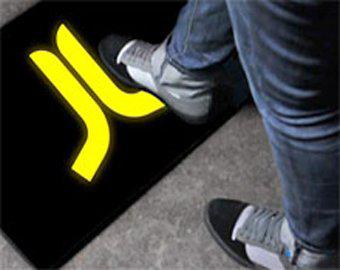524
Boots for social networks

In Sweden, came up with shoes that transmit user data in social networks
The Swedish company WeSC and digital media school Hyper Island in Karlskrona have developed a system of identification labels for footwear, which will interact with social networks without computers and smartphones. The basis of their conceptual development, dubbed KarmaTech, the Swedes put the technology of radio frequency identification (RFID), which has long been used for inventory objects (goods in warehouses and stores, books in libraries), as well as for the identification of the person (wristbands in hospitals and night clubs, chips in biometric passports and travel tickets). As applied to the sole of the shoe, RFID-tag communicates with the reader in the form of a mat or a vertical panel next to the floor. Reader sends user data to the proxy server, which transmits them to the social network as a message about the whereabouts or status in a social network. In addition, it is equipped with cafes and other such places analogue feysbukovskogo button Like, allowing, for example, standing on a mat with a new acquaintance, add it to your virtual friends. Furthermore, the shoes with a microchip will provide an opportunity for various events take place, say, or to get discounts. The main problem is the lack of KarmaTech readers where, according to the authors, it is expected to use RFID-technology. So talking about the commercial application of ideas is early. Perhaps it will be possible to implement in the near future in a test version, Kompyulenta reports with reference to Wired UK. In August last year, a similar event was carried out by Coca-Cola, which is handed out bracelets stamped in one of the summer camps in Israel. The marketing campaign beverage producer allowed young people to create a virtual vacation report to their friends on social networks.
Meanwhile, skeptics frightened rapid virtualization of our world, warned that coordinates can be transmitted not only to Facebook and that such developments, perhaps, is the prototype of the "electronic collar", which have long frightened.























